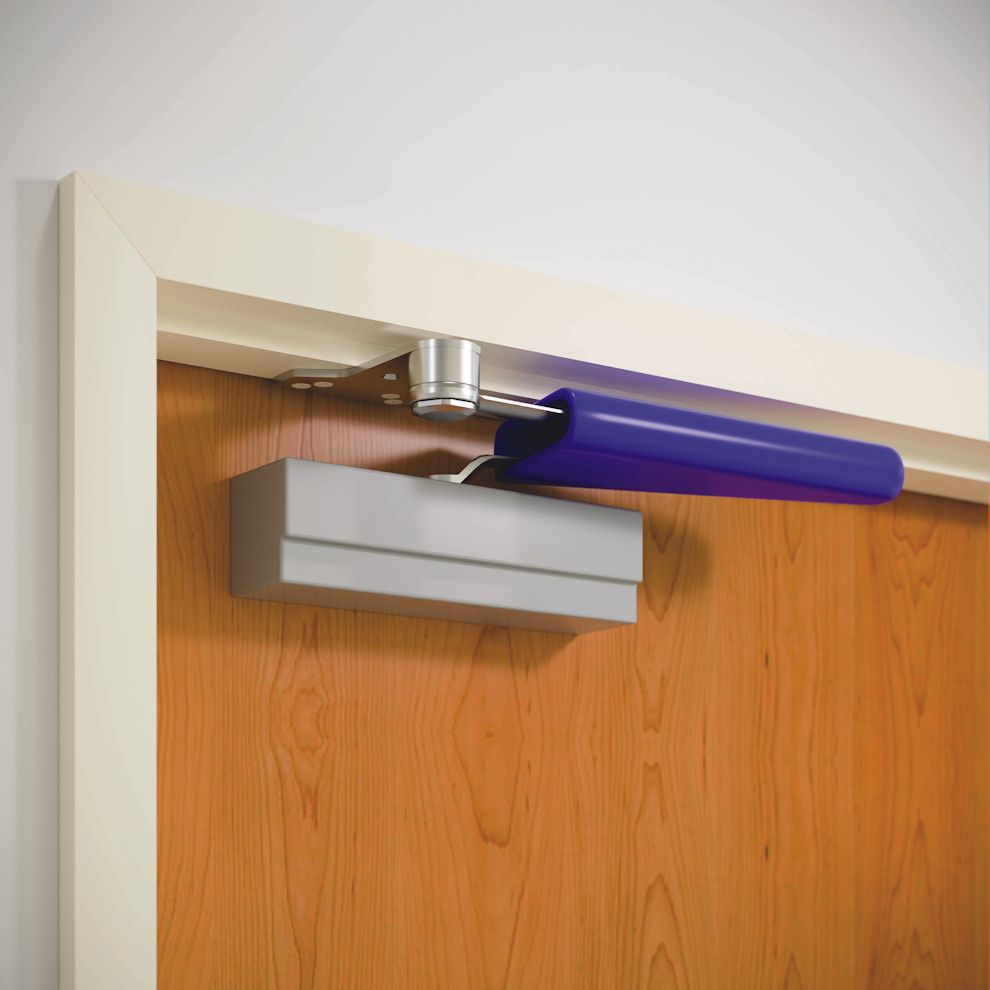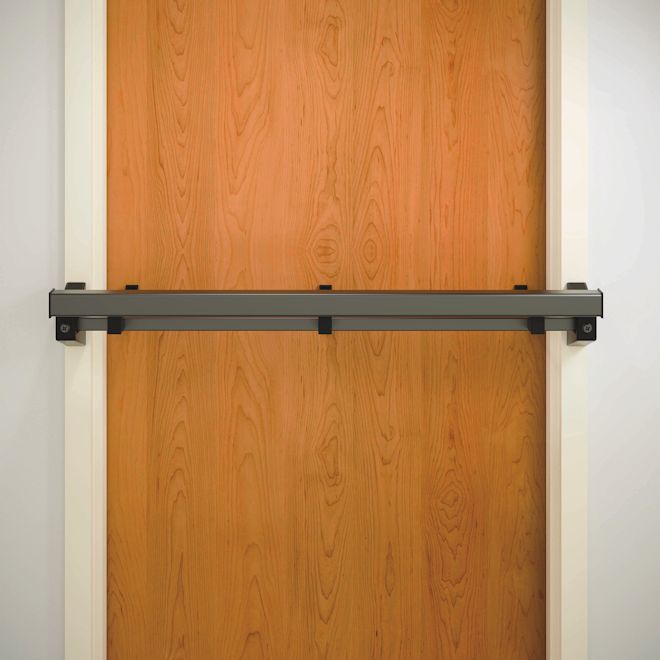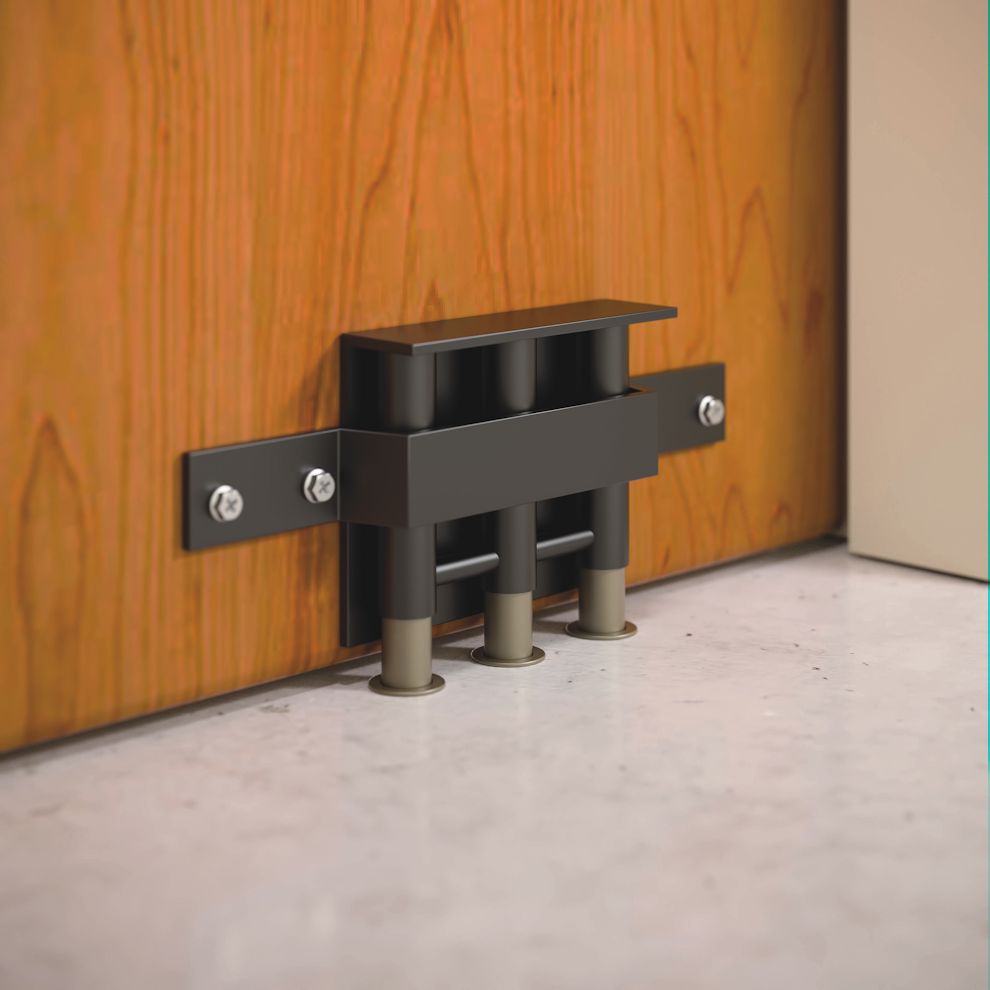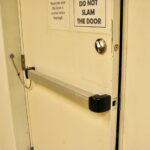I don’t know if you’ve noticed this or not 😀 but I usually get pretty detailed when I’m writing an article or answering a question. It’s not because I like to hear myself talk…I just want to make sure you’re well-informed. It was a challenge for me to write an article about classroom barricade devices with a maximum of 150 words, to be published in School Planning & Management and College Planning & Management. Normally, after 150 words I’m just getting started!
Since this article was published, I have had several people email me to thank me for writing it. One was a fire marshal who said their office had received many inquiries about the devices, and he appreciated having my resources to help educate people. It makes me proud to have code officials asking me to help with their understanding of the door-related code requirements – maybe I should be writing these short and sweet articles more often!
What Should a School Consider Before Purchasing Classroom Barricade Devices, Also Known As Temporary Door Locking Devices?
Classroom barricade devices, which are added to existing classroom door openings, are not compliant with the model fire codes and building codes used in most states. These codes, designed to ensure the safety of building occupants, require door hardware that allows free egress, meets the accessibility standards, and does not negatively impact fire protection. In order for other locking methods to be allowable by code, the devices must be approved by the Authority Having Jurisdiction (AHJ), or the code must be modified. Even if a local code change is made, some devices may not meet the federal requirements of the Americans with Disabilities Act (ADA).
An additional concern is the potential for an unauthorized person to install the barricade device and secure the classroom in order to commit a crime. Once in place, many devices currently on the market restrict all access from the outside, preventing a school staff member or emergency responder from entering the room to help. School districts are advised to check with legal counsel in order to understand any liability issues that may exist.
This article originally appeared in the September 2016 issue of School Planning & Management and the September 2016 issue of College Planning & Management.
You need to login or register to bookmark/favorite this content.








Like you, I am just getting warmed-up at 150 words, but you’ve done something with this brief article that I could never possibly do.
You delivered all of the pertinent information very economically, and delivered it in a format that is clearly understandable to people that are not in the door hardware industry.
I am constantly in awe of your talents!
Thanks Chuck!
– Lori
I was trying to figure out how to write my thoughts briefly so I could mirror your efforts on this article, but the best way I can do that is say I echo Chuck Park’s comments, down to the last exclamation point!
To quote a retired Fire Chief with nearly 40 years experience – “We haven’t lost a child to a fire in this country for nearly 50 years, but active shooters are walking into schools and killing kids. We have got to readdress what truly is a threat to our children.” Everyone must recognize that dogmatically resisting the right of people to protect themselves from active shooters with door barrier devices is counterproductive and actually foolish. It is time to wake up.
Hi Jason –
There are many ways to provide the needed security without jeopardizing egress. Granted, it may cost more to use a code-compliant product, but the codes should not be ignored because of the cost. The code change addressing classroom security was vetted by hundreds of code officials and approved – reinforcing current requirements for egress and adding a requirement for the locked door to be operable from the outside by authorized people. This illustrates that most code officials do not feel the same as the one you quoted.
– Lori